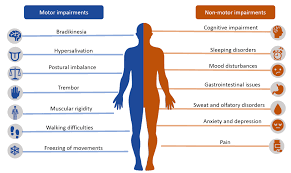
Parkinson's disease

07.12.2023
Parkinson's disease , Daily Current Affairs , RACE IAS : Best IAS Coaching in Lcuknow
|
For Prelims: About Parkinson's disease,Important points,symptoms,Cause of Parkinson’s Disease,Treatment |
Why in the news?
Recently, researchers at Oxford have developed a blood test to identify people likely to develop Parkinson's disease.
Important points:
- This test can detect early signs of the disease long before symptoms appear.
- Parkinson's disease begins as early as 10 years before symptoms appear.
- Changes in a protein called alpha-synuclein can identify people who are likely to develop Parkinson's disease.
- In the first study of its kind, the team looked at hundreds of individuals and found that those at highest risk of developing Parkinson's had two-fold increased levels of alpha-synuclein.
About Parkinson's disease:
- Parkinson's disease is a progressive disorder that affects the nervous system and the parts of the body controlled by nerves.
- Its symptoms start gradually.
- The risk of developing it increases with age.
- Parkinson's disease is the second most common neurodegenerative disease affecting seven million people worldwide and cases are projected to double by 2040.
symptoms:
- Parkinson's disease begins more than ten years before patients come to the clinic with symptoms because their brain cells fail to handle a small protein called alpha-synuclein.
- This leads to the formation of abnormal clumps of alpha-synuclein that damage vulnerable nerve cells.
- The following symptoms may be seen.
- uncontrollable shivering and shaking
- Slow gait (bradykinesia)
- Balance the difficulties and problems that ultimately arise
- stiffness in limbs
- speech changes
- writing change
- loss of automatic activities
Cause of Parkinson’s Disease
- It is caused by the degeneration of nerve cells in the part of the brain called the substantia nigra, which controls movement.
- These nerve cells die or become impaired, losing the ability to produce an important chemical called dopamine.
- Dopamine operates with other neurotransmitters to help coordinate the millions of nerve and muscle cells involved in the movement.
Treatment:
- There is no cure for Parkinson's disease; by the time people are diagnosed, damage to nerve cells has already occurred.
- Medicines, surgical treatments, and other treatments can usually provide some relief.
- Medications: Medications can help treat Parkinson's symptoms:
- increased levels of dopamine in the brain
- Affects other chemicals in the brain, such as neurotransmitters, which transfer information between brain cells
- Helping control non-motor symptoms
- Therapy: The main therapy for Parkinson's is levodopa.
- Nerve cells use levodopa to make dopamine to replenish the brain's depleted supply.
Deep brain stimulation: For people with Parkinson's disease who do not respond well to medications, doctors may recommend deep brain stimulation.